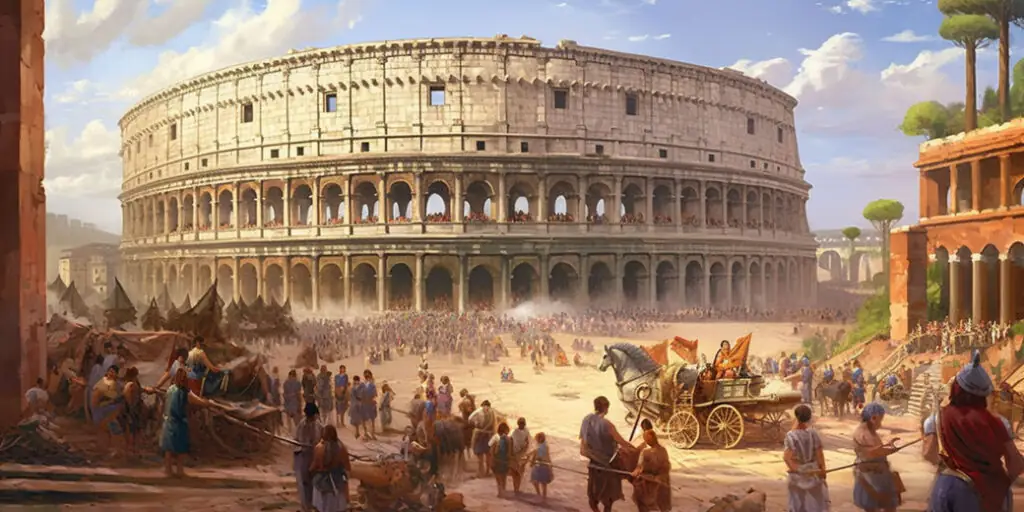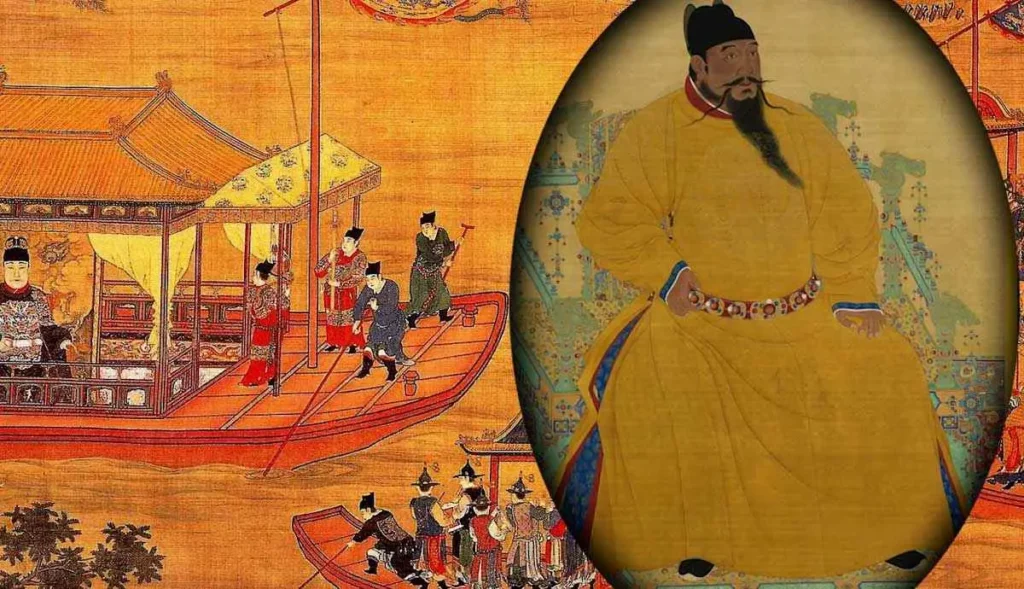Throughout history, dynasties have played a defining role in shaping the governance and culture of civilizations across the globe. In this article we will look into the definition, origin, evolution, and impact of dynasties, shedding light on their significance in ancient and modern societies.

✅ AI Essay Writer ✅ AI Detector ✅ Plagchecker ✅ Paraphraser
✅ Summarizer ✅ Citation Generator
What is a Dynasty?
A dynasty, at its core, embodies a historical continuum of leadership, where rulers hail from a shared family, clan, or lineage. This enduring model of governance has been a recurring and defining element in the annals of human history. Dynasties epitomize a lineage of leaders, frequently monarchs, who perpetuate authority across successive generations, preserving the reins of power within the boundaries of their familial heritage. Through this hereditary framework, dynasties have wielded influence over territories and states, leaving a profound mark on the socio-political landscape of their respective epochs, and their legacies continue to reverberate in the fabric of modern societies.
Origin and Evolution of Dynasties
The concept of dynastic rule, with its profound impact on governance, finds its roots in the ancient cradle of civilization, Mesopotamia. This fertile region between the Tigris and Euphrates rivers witnessed the birth of early dynastic systems, laying the very cornerstone for hereditary leadership structures that would shape the course of history.
In Mesopotamia, where city-states like Ur and Lagash flourished, dynasties emerged as a response to the need for social order and effective governance. Rulership passed down within the same familial lineage was seen as a means to provide stability and continuity in a world fraught with challenges. As these early dynasties established themselves, they set a precedent that would resonate across time and space.
The evolution of dynasties traversed continents and epochs, from the iconic pharaohs of Egypt to the enduring dynasties of China. Each civilization adapted and refined the concept, with dynastic rule becoming a defining feature of their governance structures. Over millennia, dynasties demonstrated both their strengths and vulnerabilities, leaving an indelible mark on the historical tapestry of human civilization.
Succession and Rise and Fall of Dynasties
Dynasties played a multifaceted role in shaping ancient civilizations. They served as political leaders, cultural patrons, and societal stabilizers. Notable dynasties from history, such as the Pharaohs of Egypt or the Han Dynasty in China, left an indelible mark on their respective cultures. They provided continuity and stability while also leaving behind legacies of art, architecture, and literature.
One of the defining features of dynasties is the process of succession. Dynastic succession involves the passing of power from one generation to the next within a ruling family. While hereditary rule provided stability, it also posed challenges, as not all heirs were equally capable of leadership. This led to instances where dynasties rose to power but eventually declined due to weak rulers or external factors.
Case in Point: The Roman Empire
The Roman Empire stands as a poignant illustration of dynastic succession, underscoring its complex dynamics and far-reaching consequences. The Julio-Claudian dynasty, initiated by Emperor Augustus, exhibited key characteristics of dynasties. It featured a series of rulers from the same familial lineage, offering a semblance of continuity in leadership. However, this dynasty, marked by a mix of highly effective and disastrous rulers, vividly showcased the inherent challenges of hereditary rule.

Emperor Augustus, the dynasty’s founder, was among its notable successes, bringing stability and prosperity to the empire. In contrast, the infamous Emperor Nero exemplified the dynasty’s pitfalls, marked by his tyrannical rule. Ultimately, the Julio-Claudian dynasty ceded the throne to the Flavian dynasty, which offered a more stable and prosperous reign, highlighting the role of dynastic transitions in shaping the course of Roman history.
Legacy of Dynasties
Dynasties have left an enduring legacy that continues to influence modern societies. The impact of dynasties extends beyond governance and politics. They have shaped art, culture, and traditions. For instance, the Ottoman Empire’s dynasty, which spanned centuries, left behind a rich cultural heritage, including stunning architecture and cuisine.
Case in Point: The Ming Dynasty
The Ming Dynasty of China, renowned for its artistic and cultural contributions, embodies quintessential traits of a dynasty. With a reign that spanned from 1368 to 1644, the Ming Dynasty left an indelible mark on history. Its key characteristics include the patronage of the arts, exemplified by its exquisite porcelain creations, and the construction of iconic architectural wonders like the Great Wall, demonstrating the dynasty’s enduring legacy. Even in contemporary Chinese culture, the Ming Dynasty’s influence lingers, serving as a testament to the lasting impact that dynasties can have on art, culture, and heritage.

Case in Point: The British Monarchy
The British monarchy, characterized by its uninterrupted hereditary lineage, epitomizes the enduring power of dynasties. Queen Elizabeth II, a current monarch, represents the House of Windsor, which has held the throne for generations. This continuous dynastic rule embodies tradition and continuity in the United Kingdom, with each monarch building upon the legacy of their predecessors. The British monarchy serves as an emblem of historical resilience, underlining the significance of dynasties in preserving national identity and tradition across centuries.

Conclusion
Dynasties, as sequences of rulers from the same family or lineage, have played a pivotal role in the history of human governance. From ancient civilizations to modern monarchies, the concept of hereditary rule has left an indelible mark on culture, politics, and society. Understanding the definition and legacy of dynasties allows us to appreciate their enduring impact on the course of history.
FAQ
Follow us on Reddit for more insights and updates.





Comments (0)
Welcome to A*Help comments!
We’re all about debate and discussion at A*Help.
We value the diverse opinions of users, so you may find points of view that you don’t agree with. And that’s cool. However, there are certain things we’re not OK with: attempts to manipulate our data in any way, for example, or the posting of discriminative, offensive, hateful, or disparaging material.